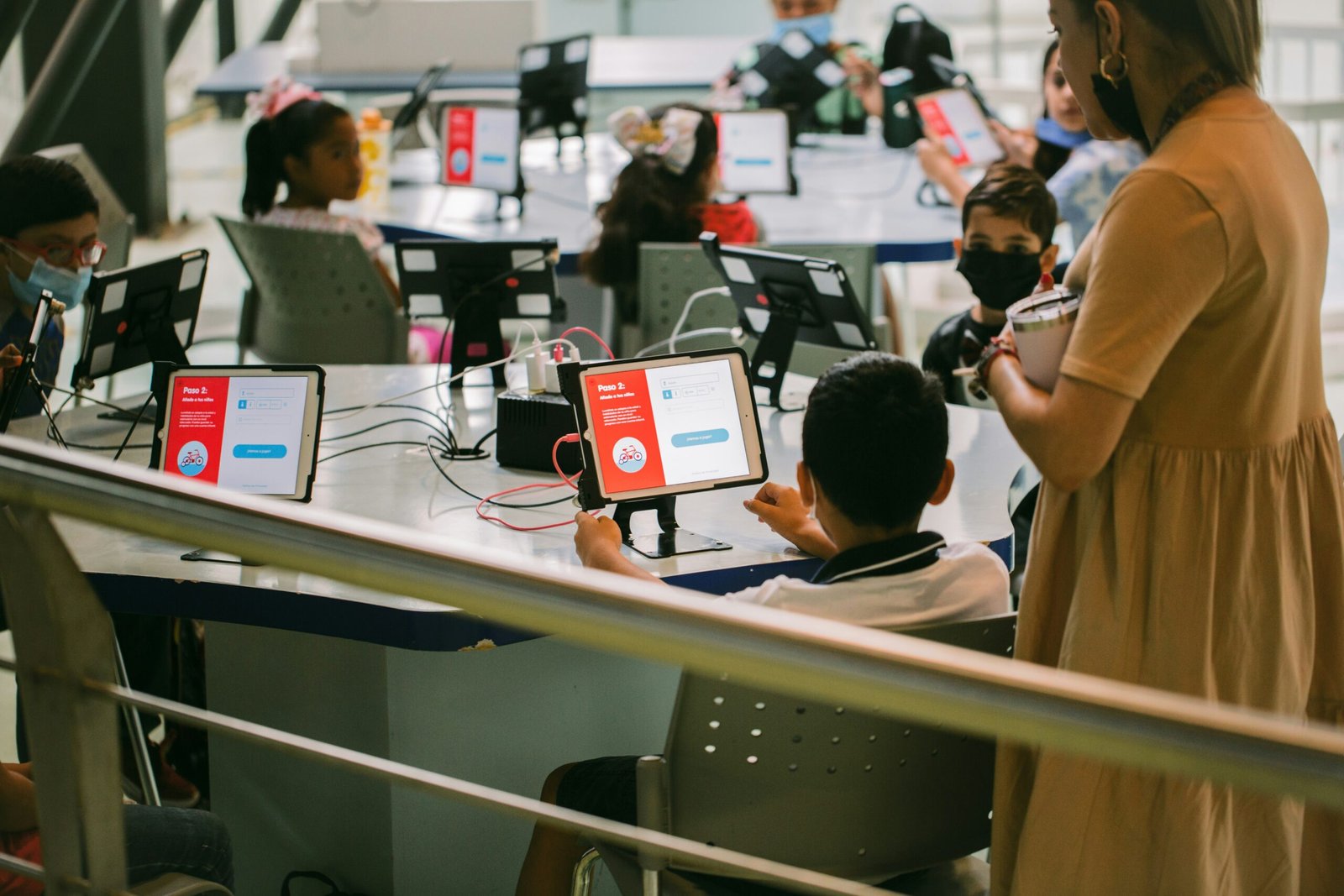Introduction to Generative AI in Education
Generative AI represents a significant advancement in the realm of artificial intelligence, focusing on the creation of content, whether it be text, images, or other forms of media. In the context of online learning, generative AI technologies, particularly natural language processing (NLP) and machine learning algorithms, are becoming essential tools for enhancing educational experiences. These technologies allow educational platforms to automate content creation, tailor learning materials to individual learner needs, and facilitate interactive learning environments.
The emergence of generative AI in education can be attributed to the increasing demand for personalized learning experiences. Traditional educational approaches often adopt a one-size-fits-all model, which may not cater to the unique needs of every student. Generative AI provides the capability to analyze vast amounts of data from student interactions and performance, enabling educators to develop customized learning paths. For instance, utilizing machine learning techniques, educational software can adapt content based on a student’s progress, engagement level, and preferred learning style, thus making education more effective.
Furthermore, the integration of generative AI in online learning environments is transforming how educational content is produced and delivered. By harnessing natural language processing, platforms can generate instructional materials, quizzes, and practice questions automatically, reducing the time educators spend on these tasks. Additionally, chatbots powered by generative AI can facilitate real-time tutoring, providing immediate support to students outside traditional classroom settings. As generative AI continues to evolve, its relevance in online education is becoming increasingly pronounced, indicating a shift toward more interactive, adaptive, and efficient learning experiences.
Personalized Learning Experiences with Generative AI
The advent of generative AI has fundamentally transformed the landscape of online learning by enabling a highly personalized educational experience for students. Traditional one-size-fits-all approaches often fail to address the diverse needs of individual learners. However, with the integration of generative AI, educational platforms can now analyze a student’s unique learning patterns and preferences. This analysis allows for the customization of content, making it more relevant and accessible for each learner.
Generative AI employs advanced algorithms to evaluate data such as a student’s performance history, engagement levels, and preferred learning styles. This data-driven approach means that educational resources can be tailored to fit each student’s specific requirements, vastly improving their educational journey. For instance, adaptive learning platforms utilize generative AI to automatically adjust the difficulty of tasks based on a learner’s progress, ensuring that they are consistently challenged yet not overwhelmed. This results in enhanced student engagement and fosters a more effective learning atmosphere.
Moreover, AI-driven assessment tools further augment personalized learning experiences by providing immediate feedback on student performance. Unlike traditional assessment methods that may take time to grade, AI tools offer real-time insights into student strengths and weaknesses. This swift feedback loop enables educators to pivot their instructional strategies accordingly, thereby optimizing student outcomes. In practice, platforms like Khan Academy and IBM’s Watson Education are exemplifying the capabilities of generative AI in creating individualized educational pathways, allowing students to pursue their specific academic interests at their own pace. Through these means, generative AI offers a revolutionary approach that acknowledges and caters to the intricate variances in learning preferences, ultimately enhancing the overall efficacy of education.
Challenges and Ethical Considerations of Generative AI in Online Learning
The integration of generative AI into online learning presents several challenges and ethical considerations that require careful deliberation. One of the primary concerns is data privacy. As educational institutions leverage AI tools, vast quantities of sensitive student data must be gathered, processed, and stored to personalize learning experiences. The risk of data breaches or unauthorized access can jeopardize student confidentiality, undermining trust between learners and educational providers. Striking a balance between enhanced learning outcomes and rigorous data privacy protocols is essential.
Another significant issue is algorithmic bias. Generative AI models are trained on existing datasets, which may reflect societal biases or inequalities. If these biases are perpetuated in AI-generated content or recommendations, they can lead to inequitable educational experiences. For instance, certain demographics may be underrepresented in training data, resulting in AI systems that fail to cater to diverse learning needs. Ensuring that AI technologies are developed and refined with a conscious effort to minimize bias is crucial for equitable access to quality education.
Moreover, there are implications of relying heavily on AI for educational decision-making. While generative AI can provide personalized learning paths, over-reliance on technology may dissolve the role of human educators in the learning process. Educators play a vital role in fostering critical thinking, emotional intelligence, and social interaction—attributes that AI cannot fully replicate. Therefore, educational institutions must carefully consider how to blend AI capabilities with traditional pedagogical approaches, ensuring that human oversight and engagement remain integral components of the learning experience.
Addressing these challenges and ethical concerns is not only vital for the responsible adoption of generative AI in online education but also for fostering an inclusive and equitable learning environment. By navigating these complexities thoughtfully, educators and institutions can harness the potential of AI to enrich education while maintaining ethical standards and prioritizing the well-being of learners.
The Future of Online Learning with Generative AI
The future of online learning is poised for significant transformation thanks to advancements in generative AI technology. As this technology continues to evolve, it promises to create more immersive and interactive learning environments. For instance, generative AI can simulate real-world scenarios, providing students with a dynamic platform to apply theoretical knowledge in practical situations. This capability to generate realistic simulations enhances the learning experience, making it more engaging and effective.
Moreover, generative AI can play a pivotal role in improving accessibility in education. By creating personalized learning materials that cater to diverse learning styles, it ensures that all students, regardless of their individual needs, receive a tailored educational experience. This adaptability is particularly important for learners with disabilities, as generative AI can modify content and deliver it in various formats, thereby breaking down barriers that traditional learning methods might present.
Another critical aspect of future online learning is the provision of real-time feedback made possible by generative AI. This technology can analyze a student’s performance instantly, offering insights and recommendations for improvement. Such timely feedback is invaluable, as it allows students to address knowledge gaps promptly and actively engage in their learning process. The continuous assessment that generative AI facilitates not only enhances the personalized learning journey but also helps educators identify areas where additional support may be needed.
As educational institutions embrace these advancements, they must also focus on ethical considerations. There is a pressing need for schools and universities to adapt their curricula and training programs to proficiently leverage generative AI. By doing so, they can ensure that the integration of these technologies aligns with educational goals while promoting equity and inclusivity. Thus, the future of online learning holds immense potential, provided that stakeholders remain vigilant in navigating the complexities of AI application in education.










